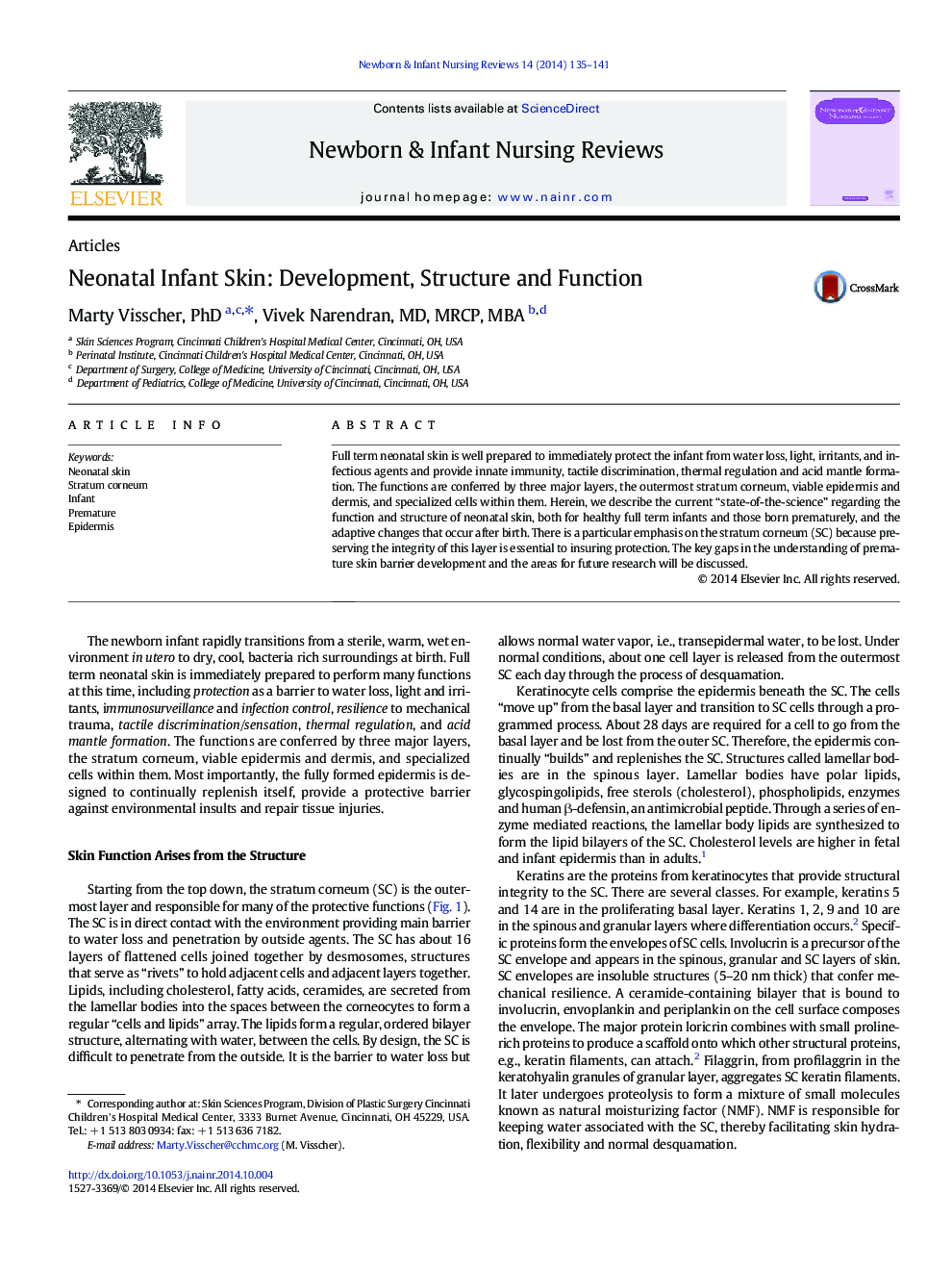| Article ID | Journal | Published Year | Pages | File Type |
|---|---|---|---|---|
| 2673179 | Newborn and Infant Nursing Reviews | 2014 | 7 Pages |
Abstract
Full term neonatal skin is well prepared to immediately protect the infant from water loss, light, irritants, and infectious agents and provide innate immunity, tactile discrimination, thermal regulation and acid mantle formation. The functions are conferred by three major layers, the outermost stratum corneum, viable epidermis and dermis, and specialized cells within them. Herein, we describe the current “state-of-the-science” regarding the function and structure of neonatal skin, both for healthy full term infants and those born prematurely, and the adaptive changes that occur after birth. There is a particular emphasis on the stratum corneum (SC) because preserving the integrity of this layer is essential to insuring protection. The key gaps in the understanding of premature skin barrier development and the areas for future research will be discussed.
Related Topics
Health Sciences
Medicine and Dentistry
Perinatology, Pediatrics and Child Health
Authors
Marty PhD, Vivek MD, MRCP, MBA,
